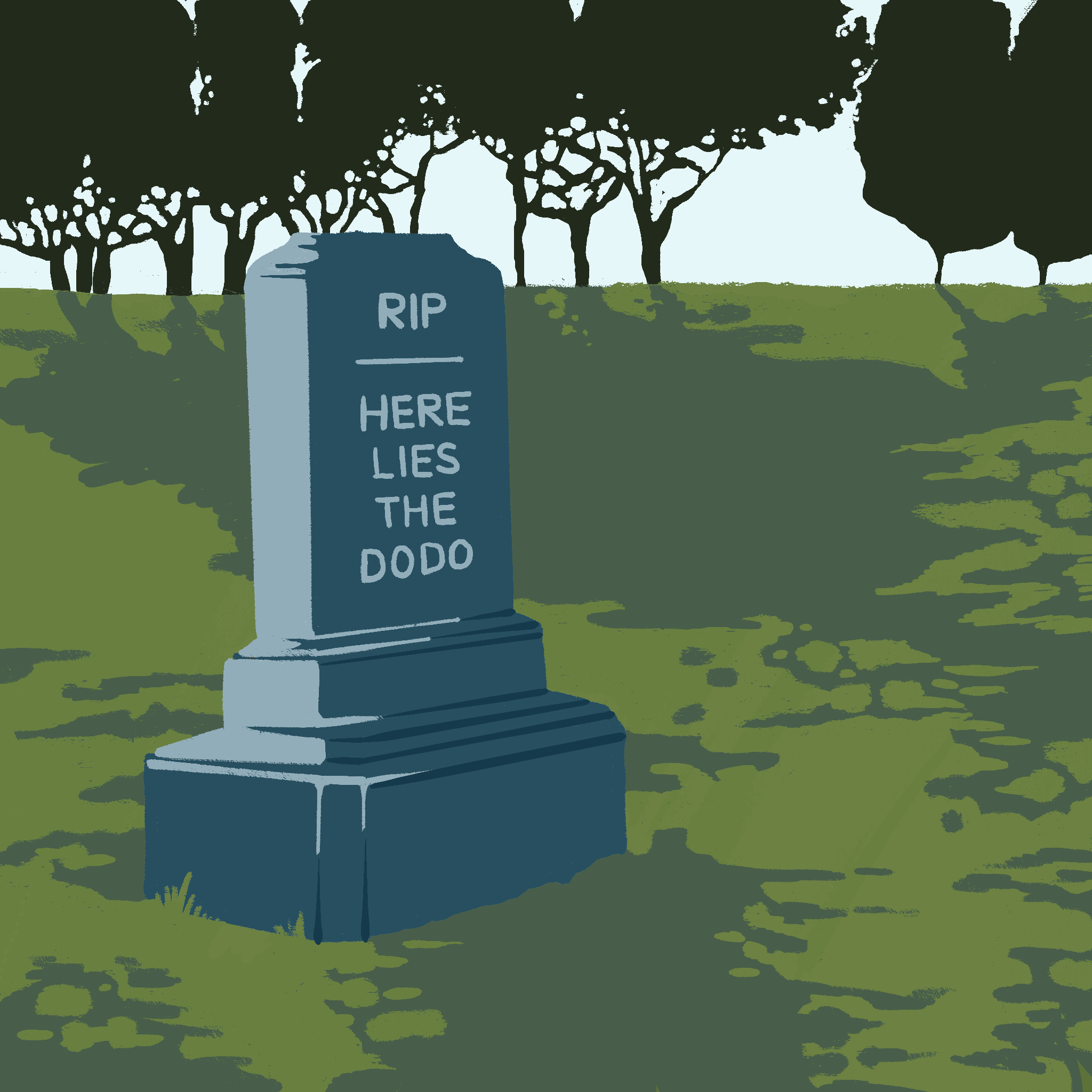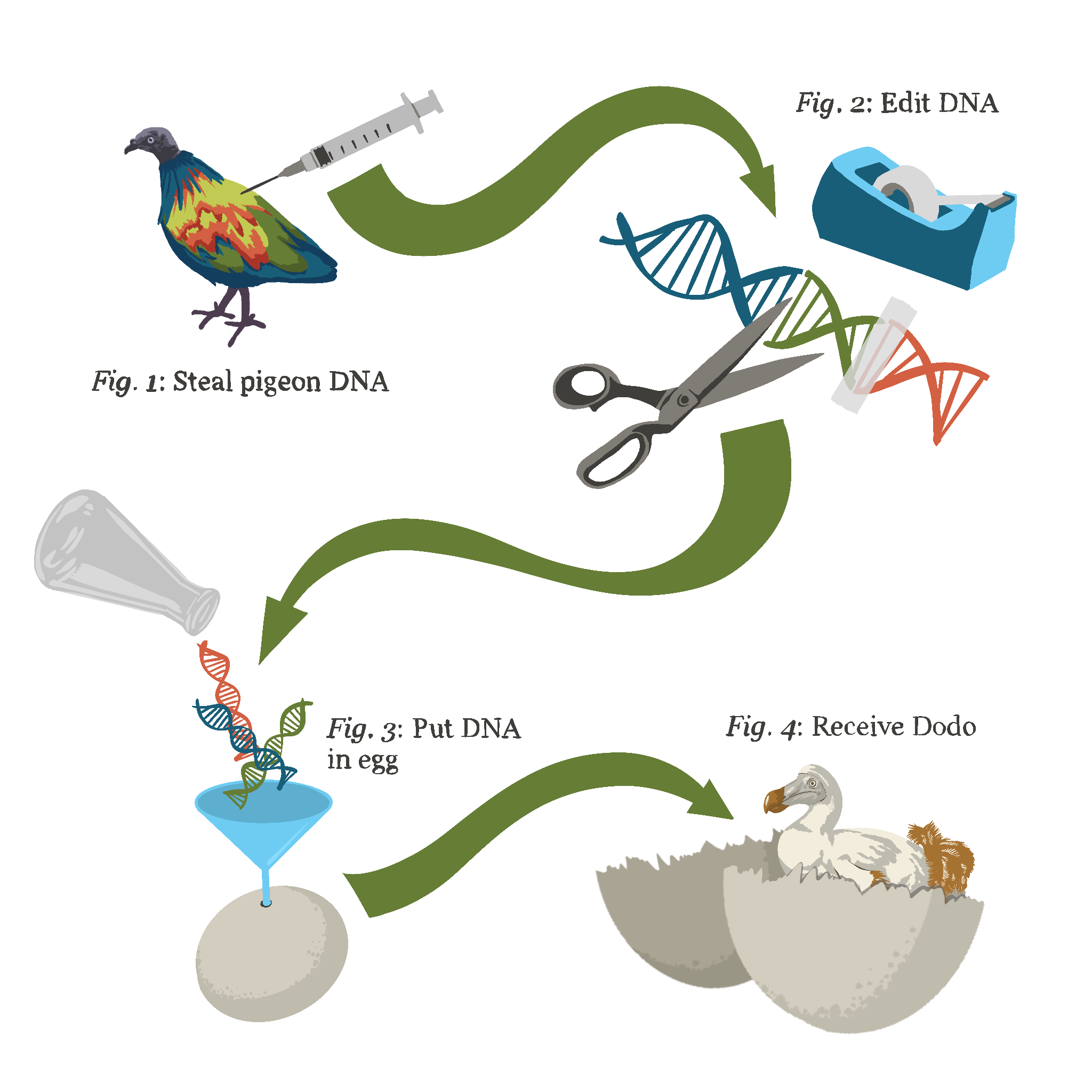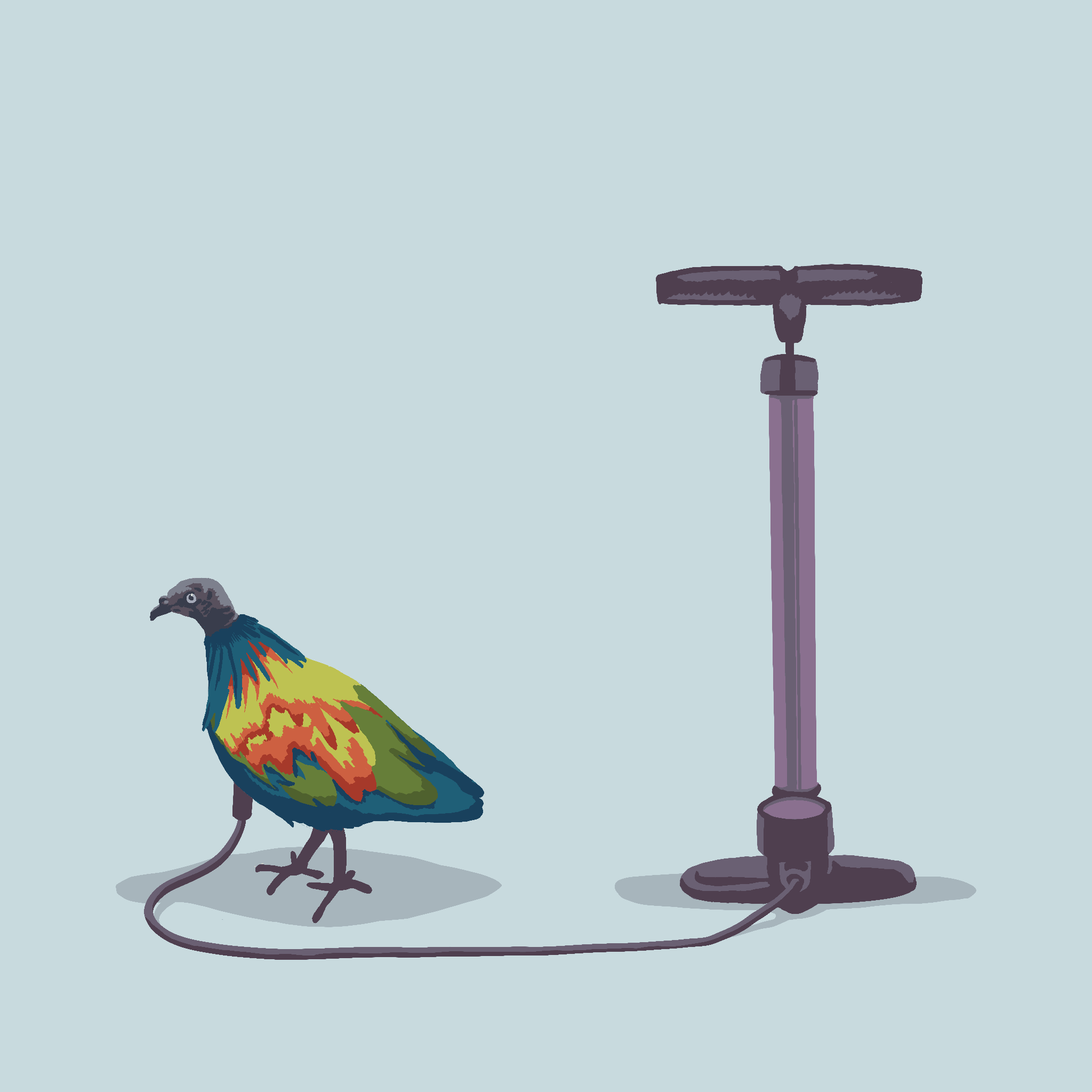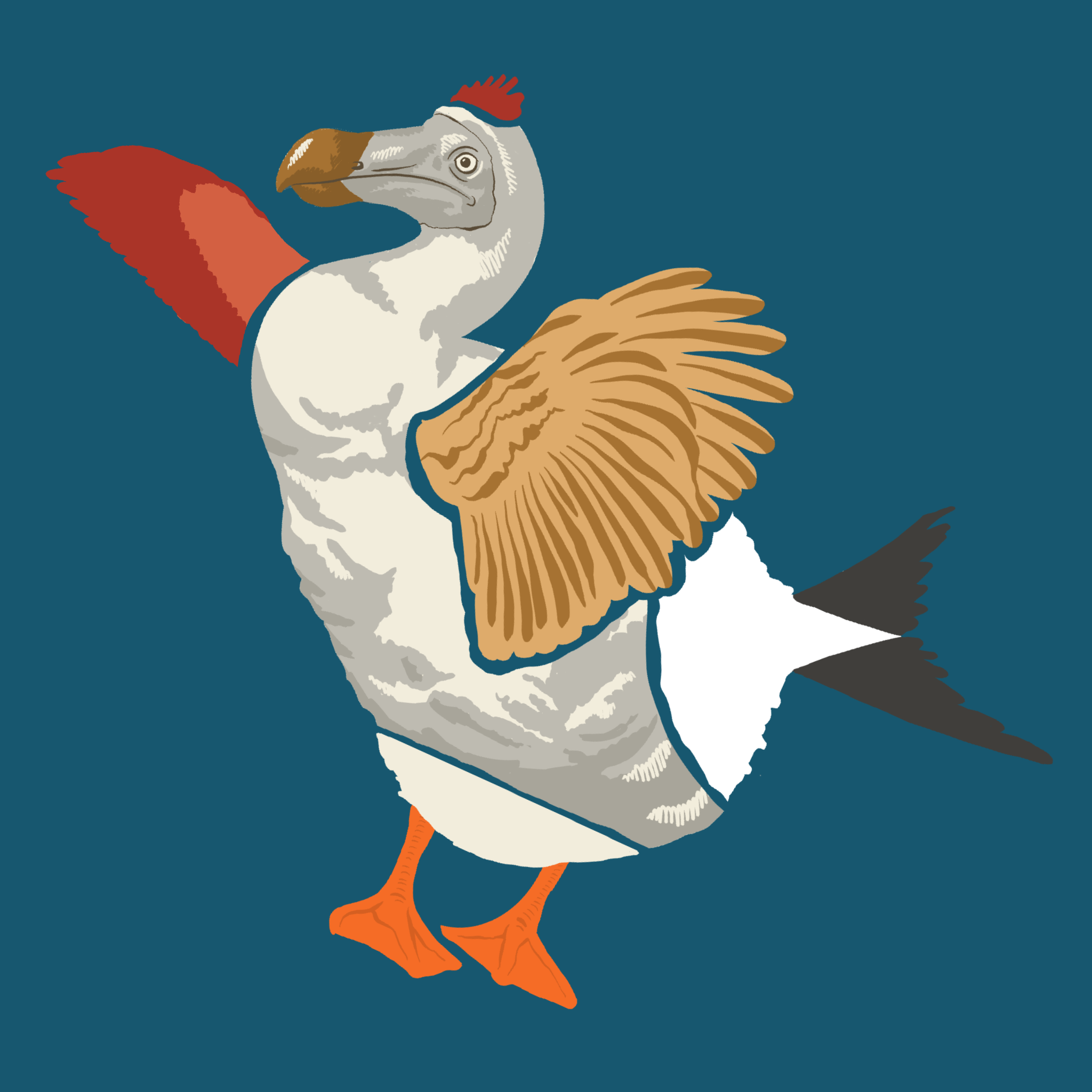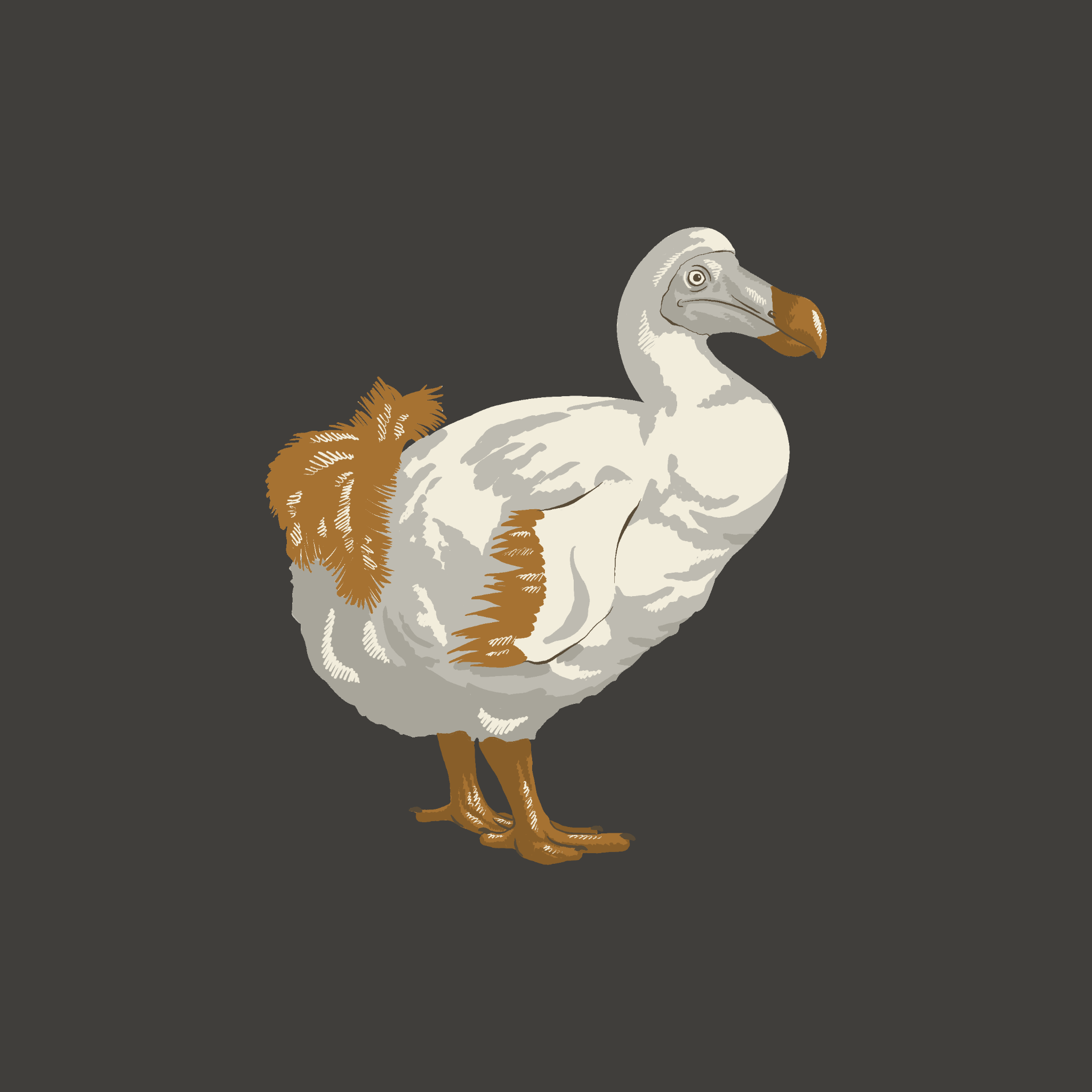Colossal Biosciences, the headline-grabbing, venture-capital-funded juggernaut of de-extinction science, announced plans on January 31
to bring back the dodo. Whether “bringing back” a semblance of the extinct flightless bird is feasible is a matter of debate.
Founded in 2021 by tech entrepreneur Ben Lamm and Harvard University geneticist George Church, the company first said it would re-create
the mammoth. And a year later it announced such an effort for the thylacine, aka the Tasmanian tiger. Now, with the launch of a new
Avian Genomics Group and a reported $150 million of additional investment, the long-gone dodo joins the lineup.
In the world of extinct animals, the dodo carries some heavy symbolic weight. Native to Mauritius in the Indian Ocean,
it went extinct in the mid- to late 17th century, after humans arrived on the island. The ungainly bird, which stood around one
meter tall and weighed about 15 to 20 kilograms, represents a particular kind of evolutionary misfortune: It should have been afraid of humans,
but it wasn’t. The birds blithely walked up to sailors, so received history goes, and didn’t flinch as their peers were killed around them.
The dodoes, which reproduced by laying a single egg on the ground, were also predated by other species, such as monkeys and rats, which humans
brought with them. Now the creature represents extinction itself—you can’t get deader than a dodo.
